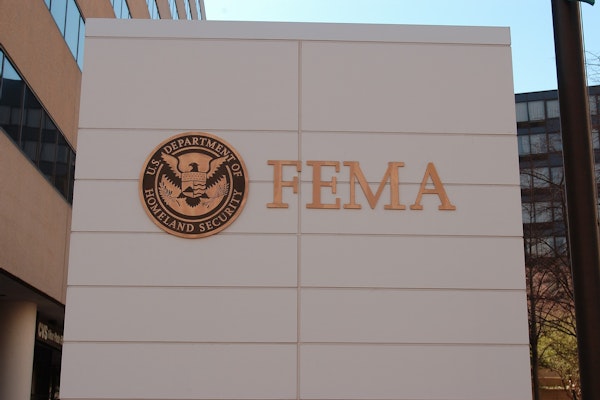
Nevada Woman Admits to Filing $98M in Fraudulent COVID-19 Tax Credit Claims
Las Vegas resident admits to conspiracy in filing over 1,200 false tax returns, securing $33M in fraudulent IRS refunds for personal gain.
February 17
Fraud
Insurance Industry
Legislation & Regulation
Litigation
Nevada

Two Fraudsters Admit to $577 Million Cryptocurrency Scam
Two Estonian men have pleaded guilty to running a $577 million cryptocurrency Ponzi scheme that defrauded hundreds of thousands worldwide. They now face up to 20 years in prison.
February 17
Fraud
Legislation & Regulation
Litigation
Technology
Washington

Fast-Food Workers Face Growing Risks as Customer Violence Escalates
As fast-food employees prepare meals, they also face an increasing risk of customer aggression. Recent violent incidents highlight the dangers of frontline service jobs.
February 14
Legislation & Regulation
Liability
Risk Management
Workers' Compensation
Michigan
Oregon
Tennessee

What Happens if OSHA Is Eliminated? The Potential Impact on Workplace Safety and Workers’ Compensation
A proposed bill seeks to abolish OSHA, shifting workplace safety to individual states. The move could increase injuries, raise workers’ compensation costs, and create legal and financial challenges for employers and insurers.
February 14
Legislation & Regulation
Liability
Risk Management
Workers' Compensation
Arizona

Tech-Powered Fraud Prevention in Insurance
AI, blockchain, and biometric verification are transforming fraud detection in insurance. These technologies enhance security, streamline claims processing, and prevent financial losses.
February 14
Fraud
Insurance Industry
Risk Management
Technology

Four Pharmacists Sentenced for $13 Million Health Care Fraud Scheme
Four pharmacists were sentenced for defrauding Medicare, Medicaid, and private insurers of over $13 million by billing for medications they never dispensed at multiple pharmacies.
February 14
Arizona
Michigan
Ohio

Ohio Insurance Agent Sentenced for $1.4 Million Fraud Scheme
Former Ohio insurance agent Rhonda Chandler received probation and faces prison if she violates terms after pleading guilty to stealing over $1.4 million in pre-need funeral insurance funds.
February 14
Fraud
Insurance Industry
Life & Health
Litigation
Ohio

How AI Is Transforming the Life Insurance Industry
Artificial intelligence is revolutionizing life insurance by enhancing efficiency, improving customer experiences, and reshaping risk management, while also introducing new challenges.
February 14
Insurance Industry
Life & Health
Risk Management
Technology

Navigating NIL Collective Risks as Insurance Needs Evolve
NIL collectives are reshaping amateur athletics, bringing unique liability risks. Without clear regulations, insurers must assess coverage needs for management liability and compliance challenges.
February 14
Insurance Industry
Legislation & Regulation
Liability
Underwriting

Shielding Your Home from Hail Damage: Essential Steps for Protection
Hailstorms can cause severe property damage, but proactive steps like impact-resistant roofing, storm shutters, and tree maintenance can help reduce risk and protect your home.
February 14
Catastrophe
Insurance Industry
Property
Risk Management

Strengthening Exposure Management to Address Hidden Insurance Risks
Overlooking excluded risks in exposure management can lead to financial strain for insurers. A proactive approach helps mitigate costs from non-indemnifiable claims.
February 14
Catastrophe
Litigation
Risk Management
Technology
California
North Carolina

How Loneliness Fuels the Rise of AI-Powered Romance Scams
Loneliness is becoming a significant societal issue, and fraudsters are taking full advantage of it. Romance scams—where criminals exploit social isolation to build fraudulent online relationships—are already costing victims billions.
February 13
Fraud
Legislation & Regulation
Risk Management
Technology

Insurers Must Adapt to Climate Change or Face Collapse
With climate disasters becoming more frequent and severe, insurers must shift from compensation to prevention, using technology and data to reduce risks before catastrophe strikes.
February 12
Catastrophe
Insurance Industry
Risk Management
Technology
California

Michigan Expands Auto Theft Task Force to Combat Rising Crime
Michigan is tackling surging auto theft by expanding its Auto Fraud Task Force, partnering with law enforcement to curb organized crime and reduce insurance costs.
February 12
Auto
Fraud
Insurance Industry
Litigation
Michigan

FEMA Raises NFIP’s Estimated Losses from Hurricane Helene to $7.4 Billion
FEMA now estimates NFIP losses from Hurricane Helene to be between $6.4 billion and $7.4 billion, with total claims exceeding 57,400. The agency has borrowed $2 billion to cover claims.
February 12
Catastrophe
Insurance Industry
Legislation & Regulation
Property





